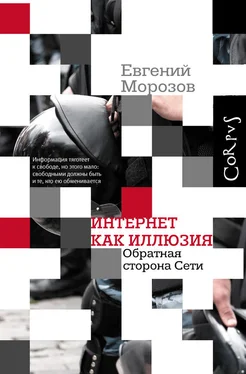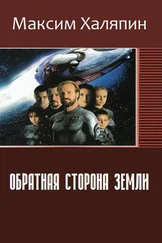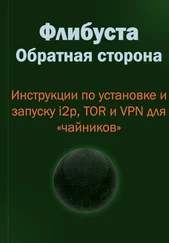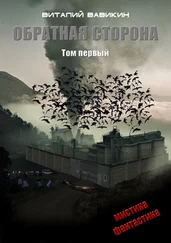Bueno De Mesquita, Ethan Regime Change and Revolutio-nary Entrepreneurs // American Political Science Review 104 (3): 446–466.
Builder, Carl H., and Steven C. Bankes The Etiology of European Change . Santa Monica, CA: RAND, 1990.
Burrows, Peter Internet Censorship, Saudi Style // Business Week, November 13, 2008.
Cheng, C. T. New Media and Event: A Case Study on the Power of the
Internet // Knowledge, Technology & Policy 22, no. 2 (2009): 145–153. Chiou, Jing-Yuan, Dincecco, Mark, and David Rahman
Private Information and Institutional Change: The Case of Foreign Threats // Social Science Research Network Working Paper Series, December 22, 2009.
Collier, D., and S. Levitsky Democracy with Adjectives: Con-ceptual Innovation in Comparative Research // World Politics 49, no. 3 (1997): 430–451.
Converse, P. E. Power and the Monopoly of Information // The
American Political Science Review 79, no. 1 (1985): 1–9. Cooper, B. The Western Connection: Western Support for the East Ger-man Opposition // German Politics and Society 21, no. 4 (2003): 74–93.
Corrales, J., and F. Westhoff Information Technology Adoption and Political Regimes // International Studies Quarterly 50, no. 4 (2006): 911–933.
De Mesquita, B. B., and G. W. Downs Development and De-mocracy // Foreign Affairs 84, no. 5 (2005): 77–86.
Deibert, Ronald, Palfrey, John G., Rohozinski, Rafal, and Jonathan Zittrain Access Denied: The Practice and Policy of Global Internet Filtering . Cambridge, MA: MIT Press, 2008.
Deibert, Ronald, Palfrey, John G., Rohozinski, Rafal, and Jonathan Zittrain Access Controlled: The Shaping of Power, Rights, and Rule in Cyberspace . Cambridge, MA: MIT Press, 2010.
Drezner, Daniel Weighing the Scales: The Internet’s Effect on State-Society Relations // Brown Journal of World Affairs 16, no. 2
(2010).
Egorov, G., Guriev, S., and K. Sonin Why Resource-Poor Dicta-tors Allow Freer Media: A Theory and Evidence from Panel Data // American Political Science Review 103, no. 04 (2009): 645–668.
Elhadj, Elie The Islamic Shield: Arab Resistance to Democratic and Religious Reforms . Boca Raton, FL: BrownWalker Press, 2007. Fletcher, Owen China Pays Web Users to Find Porn Amid Crack-down // IDG News Service, January 19, 2010.
Friedman, Thomas L. The Lexus and the Olive Tree . New York: Farrar, Straus, Giroux, 2000.
Friedrich, Carl Joachim, and Zbigniew Brzezinski To-talitarian Dictatorship and Autocracy . Cambridge, MA: Harvard University Press, 1965.
Gandhi, J., and A. Przeworski Authoritarian Institutions and the Survival of Autocrats // Comparative Political Studies 40, no. 11 (2007): 1279.
Gans-Morse, J. Searching for Transitologists: Contemporary Theories of Post-Communist Transitions and the Myth of a Dominant Para-digm // Post-Soviet Affairs 20, no. 4 (2004): 320–349.
Geddes, B. Why Parties and Elections in Authoritarian Regimes? Pre-sented to the Annual Meeting of the American Political Science Association, 2005.
Habermas, J. Political Communication in Media Society: Does De-mocracy Still Enjoy an Epistemic Dimension? The Impact of Norma-tive Theory on Empirical Research // Communication Theory 16, no. 4 (2006): 411–426.
He, B., and M. E. Warren Authoritarian Deliberation: The Deli-berative Turn in Chinese Political Development / In: Proceedings of the American Political Science Association Annual Meeting, vol. 28. Boston: American Political Science Association, 2008.
Hearn, K. The Management of China’s Blogosphere Boke (Blog) // Continuum 23, no. 6 (2009): 887–901.
Hearn, K., and B. Shoesmith Exploring the Roles of Elites in Managing the Chinese Internet // Javnost – The Public, Vol 11 (2004) 101–114.
Hille, Kathrin The Net Closes // Financial Times, July 18, 2009. Hoover, D., and D. Kowalewski Dynamic Models of Dissent and Repression // Journal of Conflict Resolution 36, no. 1 (1992): 150–182.
Huang, Haifeng Media Freedom, Governance, and Regime Stabi-lity in Authoritarian States . Unpublished Paper, 2008.
Huntington, Samuel P. The Third Wave: Democratization In the Late Twentieth Century . Norman: University of Oklahoma Press, 1993.
Jiang, M., and H. Xu Exploring Online Structures on Chinese Go-vernment Portals: Citizen Political Participation and Government Legitimation // Social Science Computer Review 27, no. 2 (2009): 174–195.
Johnson, Erica, and Beth Kolko E-Government and Trans-parency in Authoritarian Regimes: Comparison of National– and City-Level E-Government Websites in Central Asia . Presented at the Annual Meeting of the International Studies Association, 2010.
Johnston, H., and C. Mueller Unobtrusive Practices of Con-tention in Leninist Regimes // Sociological Perspectives 44, no. 3 (2001): 351–375.
Kaplan, Jeremy A. China Expanding Censorship to Text Messages // FOX News.com, January 20, 2010. www.foxnews.com/scitech/ 2010/01/20/china-expanding-censorship-text-messages/.
Kapstein, E. B., and N. Converse Why Democracies Fail // Journal of Democracy 19, no. 4 (2008): 57–68.
Kaufman, Stephen Bloggers in Mauritania Form a Union // America.gov, August 8, 2008. www.america.gov/st/democracy-english/2008/April/20080408172637liameruoy0.9660608.html.
Kennedy, J. J. Maintaining Popular Support for the Chinese Com-munist Party: The Influence of Education and the State-Controlled Media // Political Studies 57, no. 3 (2009): 517–536.
Kluver, R. The Architecture of Control: A Chinese Strategy for E-Go-vernance // Journal of Public Policy 25, no. 1 (2005): 75–97.
Kluver, R. US and Chinese Policy Expectations of the Internet // Chi-na Information 19, no. 2 (2005): 299.
Kluver, R., and C. Yang The Internet in China: A Meta-Review of
Research // Information Society 21, no. 4 (2005): 301–308. Kramer, Andrew E., and Jenna Wortham Professor Main
Target of Assault on Twitter // New York Times, August 7, 2009. Kristof, Nicholas D. Death by a Thousand Blogs // New York
Times, May 24, 2005.
Lacharite, J. Electronic Decentralisation in China: A Critical Analysis of Internet Filtering Policies in the People’s Republic of China // Australian Journal of Political Science 37, no. 2 (2002): 333–346.
Lagerkvist, J. The Techno-Cadre’s Dream: Administrative Reform by Electronic Governance in China Today? // China Information 19, no. 2 (2005): 189.
Latham, K. SMS, Communication, and Citizenship in China’s Information Society // Critical Asian Studies 39, no. 2 (2007): 295–314.
Levitsky, S., and L. A. Way The Rise of Competitive Authoritari-anism // Journal of Democracy 13, no. 2 (2002): 51–65.
Levy, Clifford J. Videos Rouse Russian Anger Toward Police // New York Times, July 27, 2010.
Li, S. The Online Public Space and Popular Ethos in China // Media, Culture & Society 32, no. 1 (2010): 63.
MacKinnon, R. Flatter World and Thicker Walls? Blogs, Censorship and Civic Discourse in China // Public Choice 134, no. 1 (2008): 31–46.
MacKinnon, R. Liberty or Safety? Both – or Neither // IEEE Spec-trum, May 2010.
Magaloni, B., and J. Wallace Citizen Loyalty, Mass Protest and Authoritarian Survival . Presented at the Conference on Dictator-ships: Their Governance and Social Consequences , Princeton Uni-versity, April 2008.
Markoff, J. Iranians and Others Outwit Net Censors // New York Times, April 30, 2009.
Читать дальше
Конец ознакомительного отрывка
Купить книгу











